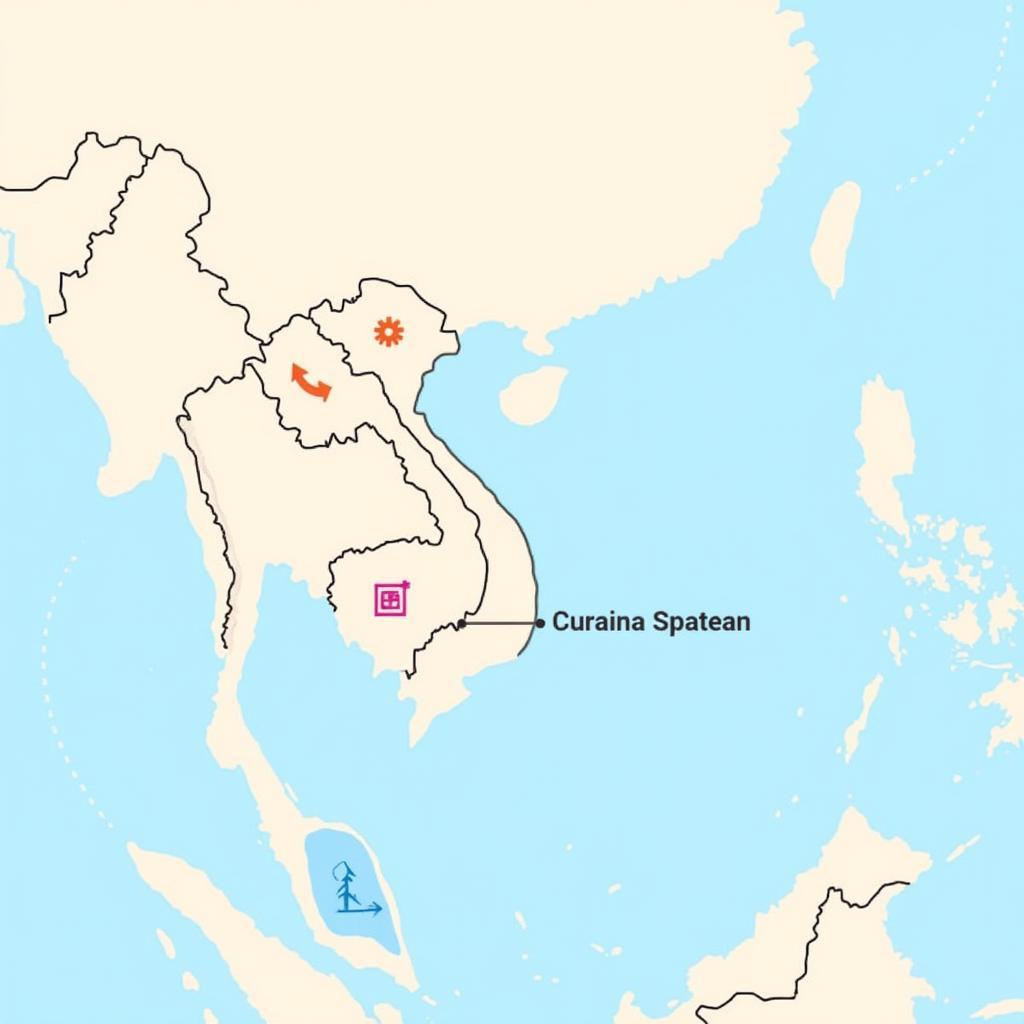The phrase “15 foreign militaries aim weapons at Indonesia” might sound like a scene from an action movie, but is there any truth to it? Indonesia, with its strategic location and vast resources, has always been a subject of interest for global powers. This article dives deep into the complexities of international relations, military posturing, and the realities of the defense landscape in Southeast Asia.
A Look at Indonesia’s Geopolitical Landscape
Indonesia, as the largest archipelago nation globally, occupies a strategic position in maritime Southeast Asia. This location, while advantageous for trade and connectivity, also makes it a crucial player in regional security. Surrounded by vital shipping lanes and bordering several nations, Indonesia’s territorial integrity is paramount.
Defense Cooperation: Friend or Foe?
It’s essential to understand that the presence of foreign military activity in a region doesn’t necessarily translate to immediate hostility. Many countries, including Indonesia, engage in joint military exercises and defense pacts with global partners. These collaborations serve multiple purposes:
- Enhancing interoperability: Joint exercises allow different militaries to train together, improving coordination and communication in potential crisis scenarios.
- Deterrence: A show of combined military strength can discourage potential aggressors from taking hostile actions.
- Capacity building: These collaborations often involve sharing expertise and technology, strengthening the participating countries’ defense capabilities.
Analyzing the “15 Foreign Militaries” Claim
While pinpointing the exact origins and accuracy of the claim regarding “15 foreign militaries” is challenging, it underscores the importance of critical thinking in the face of sensationalized information.
- Misinformation and Disinformation: The spread of false or misleading information is a growing concern. It’s crucial to rely on credible sources and verified data when assessing such claims.
- Contextual Understanding: Analyzing geopolitical events requires a nuanced perspective. Statements need to be evaluated within their broader context, considering historical relationships, current events, and diplomatic engagements.
Indonesia’s Stance: Non-Aligned and Proactive
Indonesia adheres to a foreign policy of non-alignment, meaning it doesn’t formally ally with any major power bloc. Instead, it prioritizes partnerships based on mutual respect, cooperation, and shared interests.
- ASEAN Centrality: Indonesia is a founding member of the Association of Southeast Asian Nations (ASEAN) and actively promotes dialogue and peaceful resolutions within the regional bloc.
- Military Modernization: Recognizing the dynamic security environment, Indonesia has been investing in modernizing its armed forces, aiming for a credible defense posture capable of addressing various threats.
Moving Forward: Transparency and Open Dialogue
In an increasingly interconnected world, open communication and transparency are paramount in navigating geopolitical complexities.
- Responsible Reporting: Media outlets and information sources have a crucial role in providing accurate, unbiased reporting on sensitive issues like military activities.
- Promoting Understanding: Fostering greater public awareness about defense policies, international relations, and regional security dynamics is essential to counter misinformation and encourage informed discussions.
While the specific claim about “15 foreign militaries” targeting Indonesia might be questionable, it highlights the importance of staying informed and engaged in discussions surrounding regional security. Indonesia, with its commitment to peace and stability, continues to play a pivotal role in shaping the future of Southeast Asia.

